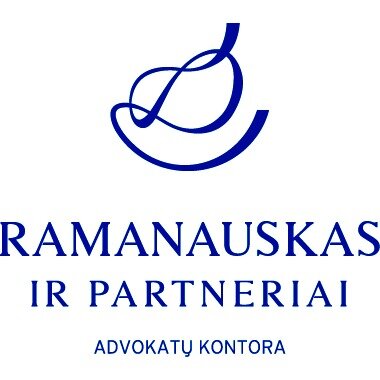Best Agriculture Lawyers in Republic of Lithuania
Share your needs with us, get contacted by law firms.
Free. Takes 2 min.
Or refine your search by selecting a city:
List of the best lawyers in Republic of Lithuania
About Agriculture Law in Republic of Lithuania:
Agriculture is a significant sector in the Republic of Lithuania, with many laws and regulations in place to govern this industry. These laws cover various aspects such as land ownership, environmental protection, agricultural subsidies, and food safety standards.
Why You May Need a Lawyer:
You may need a lawyer in the field of Agriculture in the Republic of Lithuania for various reasons, including disputes over land ownership, contract negotiations with suppliers or buyers, compliance with environmental regulations, or seeking compensation for damages caused by agricultural activities.
Local Laws Overview:
Key aspects of local laws that are particularly relevant to Agriculture in the Republic of Lithuania include the Law on Land, the Law on Agricultural Activities, the Law on Forestry, and the Law on Food Safety. These laws regulate land use, agricultural production, forest management, and food quality standards.
Frequently Asked Questions:
1. What are the rules for land ownership in the Republic of Lithuania?
In Lithuania, only citizens and legal entities registered in Lithuania can own agricultural land. Foreigners may only lease agricultural land for up to 99 years.
2. Are there subsidies available for farmers in Lithuania?
Yes, the Lithuanian government provides various subsidies and support programs for farmers to promote agricultural activities and rural development.
3. What are the environmental regulations for agricultural activities in Lithuania?
Agricultural activities in Lithuania are subject to environmental regulations aimed at protecting the environment, biodiversity, and natural resources.
4. How can I ensure food safety compliance for my agricultural products in Lithuania?
You must adhere to the food safety standards set by the Lithuanian government and the European Union to ensure the quality and safety of your agricultural products.
5. What are the legal requirements for agricultural contracts in Lithuania?
Agricultural contracts in Lithuania must comply with the general principles of contract law and specific regulations related to agricultural activities.
6. Can I appeal a decision made by a governmental agency regarding my agricultural activities?
Yes, you have the right to appeal any administrative decisions made by governmental agencies regarding your agricultural activities through the appropriate legal channels.
7. Are there restrictions on agricultural imports and exports in Lithuania?
Yes, there are regulations on agricultural imports and exports to ensure food safety, animal health, and plant protection standards are met.
8. What are the legal implications of agricultural land use planning in Lithuania?
Agricultural land use planning in Lithuania is regulated by laws that aim to balance the interests of agricultural production, environmental protection, and sustainable development.
9. How can I resolve disputes with other agricultural stakeholders in Lithuania?
You can seek legal assistance to resolve disputes with other agricultural stakeholders through negotiation, mediation, or litigation if necessary.
10. What are the legal requirements for animal welfare in agricultural activities in Lithuania?
Agricultural activities involving animals in Lithuania must comply with animal welfare laws and regulations to ensure the humane treatment of animals.
Additional Resources:
For more information and assistance related to Agriculture law in the Republic of Lithuania, you can contact the Ministry of Agriculture, the Lithuanian Chamber of Agriculture, or seek legal advice from reputable law firms specializing in Agriculture law.
Next Steps:
If you require legal assistance in Agriculture in the Republic of Lithuania, it is recommended to consult with a qualified lawyer who specializes in this field. They can provide guidance on your rights, obligations, and options for resolving any legal issues that may arise.
Lawzana helps you find the best lawyers and law firms in Republic of Lithuania through a curated and pre-screened list of qualified legal professionals. Our platform offers rankings and detailed profiles of attorneys and law firms, allowing you to compare based on practice areas, including Agriculture, experience, and client feedback.
Each profile includes a description of the firm's areas of practice, client reviews, team members and partners, year of establishment, spoken languages, office locations, contact information, social media presence, and any published articles or resources. Most firms on our platform speak English and are experienced in both local and international legal matters.
Get a quote from top-rated law firms in Republic of Lithuania — quickly, securely, and without unnecessary hassle.
Disclaimer:
The information provided on this page is for general informational purposes only and does not constitute legal advice. While we strive to ensure the accuracy and relevance of the content, legal information may change over time, and interpretations of the law can vary. You should always consult with a qualified legal professional for advice specific to your situation.
We disclaim all liability for actions taken or not taken based on the content of this page. If you believe any information is incorrect or outdated, please contact us, and we will review and update it where appropriate.
Browse agriculture law firms by city in Republic of Lithuania
Refine your search by selecting a city.














